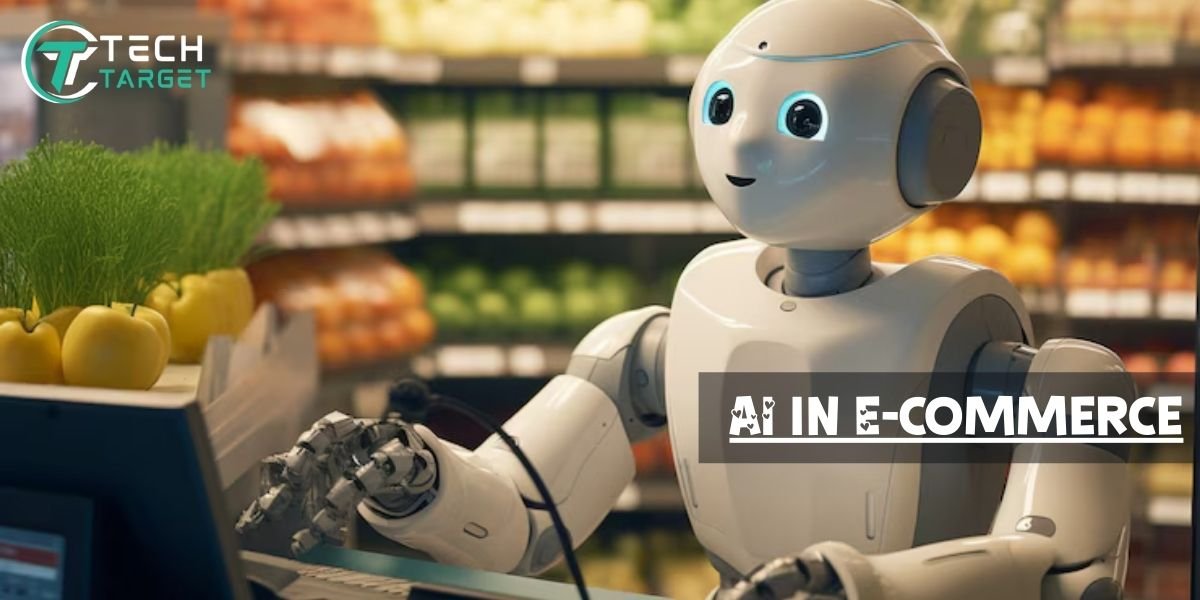AI is pushing the limits in every field of the world. E-commerce and blockchain are key areas of development that are undergoing digital transformation. There are various applications of AI across different industries, and e-commerce is one of those areas that implements AI. According to Statista, the forecasted market size of AI in e-commerce and retail will reach $31 billion by 2028. As of early 2026, the global AI in retail and e-commerce market is already valued at approximately $16.54 billion, with a compound annual growth rate (CAGR) exceeding 26%. This quick rise from 4.8 billion USD (2021) indicates the potential of this technology in the digital selling space. AI applications enable retailers to discover new ways of marketing and selling their products across different markets worldwide.
The compounding advancements make the online competition more fierce every day. For starters, embracing AI is a must as traditional E-commerce is a loss in today’s fast-paced market. Current 2026 data shows that 77% of e-commerce professionals now use AI daily, confirming its role as essential infrastructure rather than a luxury. This article will provide a walkthrough of modern e-commerce and will highlight the importance of AI, especially for e-commerce startups.
AI Powered E-Commerce Technologies
Artificial intelligence is a result of various technologies and methods that enable the computer to process large amounts of data and create mind-boggling outputs from it. Machine learning is one of the foundational back-end techniques that involve several algorithms, making the system learn from data and user inputs. This makes solutions that intelligently understand the relationships between datasets and user intents. For AI in e-commerce, the key technologies that transform digital marketplaces are as follows:
NLP
NLP (Natural Language Processing) is the technology that enables e-commerce platforms to understand various languages spoken worldwide. NLP enables computers to interpret information in natural human language and flows. This bridges the gap for e-commerce platforms and speakers from different areas globally. With NLP, AI e-commerce platforms can understand user queries and searches in native languages, generating the correct results. This significantly improves the customer experience, giving the platform an edge over other marketplaces. In 2026, 93% of customer questions are now resolved without human intervention thanks to advanced NLP that understands intent, not just keywords.
Computer Vision
Computer vision is the technology that enables modern e-commerce platforms to search for products from image and video inputs. It is a revolutionary technology that uses machine learning and image recognition algorithms to understand the information from images or videos. In AI e-commerce platforms, customers can also search for their favorite products just through images or internet screenshots, without knowing their names and details. Visual search adoption has accelerated in 2026, with searches increasing 70% globally; retailers deploying visual search report a 30% higher engagement rate.
Data Mining
Data mining is a counterpart of machine learning technology that uses statistical techniques to mine further into the datasets. It allows the system to make intelligent predictions and create much better self-generated responses, i.e., without explicit instructions. Data mining is the tech behind deep learning models such as transformers and LLM (Large Language Models) that made modern solutions like OpenAI’s ChatGPT. Data mining also plays a pivotal role in e-commerce and retail as it enables the system to understand the product better and target the relevant audience intelligently.
How AI Transforms E-Commerce: 5 Proven Advantages
AI in e-commerce is an effective solution to help brands craft a streamlined buying experience. It is crucial for startups that are stepping into the e-commerce industry to improve their customer retention, engagement, and Business to Business (B2B) and Business to Customers (B2C) channels. Giants like Amazon have already incorporated AI into their platforms. It uses ML-powered solutions to optimize user experience and logistics. Moreover, the industry leaders from different sectors are supporters of AI technology to power the digital world. Here is how AI in e-commerce transforms business networks and their retail journeys:
Personalized Recommendations
Recommendations are king in the world of e-commerce. A shopper who browses the platform is highly influenced by personalized recommendations that he is interested in. According to McKinsey’s 2023 report, personalized recommendations are crucial for marketing and driving sales. It can “reduce customer acquisition costs by as much as 50 percent, lift revenues by 5 to 15 percent, and increase marketing ROI by 10 to 30 percent.” Moreover, the report also mentions that over 71% of customers are looking for a personalized experience when browsing the marketplace. For all of this, AI is a necessary component that supercharges your e-commerce store with highly specialized features. By 2026, personalized product recommendations have been shown to increase revenue by up to 300%, while 91% of consumers explicitly prefer brands that offer tailored experiences.
Automating Customer Support
Customer support is always the first team to hire when setting up a business. It is costly and requires manpower if the business is expanding to different regions worldwide. Overcoming this hurdle comes AI chatbots that prove to be a magical solution for e-commerce retailers and shoppers alike. There are several advantages of implementing AI chatbots. For instance, AI chatbots never sleep; they are up for customer support 24/7. No coffee breaks for them as well, and above all, AI chatbots are intelligent and learn from customer behavior and responses. This assists the e-commerce platforms to address all sorts of customer queries instantly while keeping their workforce hiring costs down to their budgets. Current 2026 research indicates that businesses save an average of $327,500 annually by automating routine interactions, with AI interaction costs being as low as $0.03 per minute compared to $3.00+ for human agents.
Intelligent Inventory Management
AI in e-commerce is all about intelligently managing resources to reduce costs and boost operational efficiency. Automatic inventory management and checkups are key solutions in this regard. AI e-commerce platforms use predictive analysis algorithms that look up to the existing inventory items and stock levels. These algorithms understand the patterns of sales and expenditures, providing the company with accurate information of inventory and suggestions for their next stock orders. According to a survey, AI inventory management helps businesses reduce logistics expenses by 15%. Recent studies in 2026 show that companies embedding AI into operations reduce inventory holdings by 20% to 30% due to superior demand forecasting. Moreover, as the business grows larger, these AI solutions can scale up from managing a simple inventory to complete warehouses of stocks.
Dynamic Pricing
Prices are what customers look for when shopping online. Sales and discounts attract them the most, but high prices can redirect them to other platforms. Hitting a balance on profit and investment relies on the accurate pricing of products. Optimized prices stabilize the platform and maintain sales consistency but require a complete research and market analysis to hit the sweet spot. Here come AI’s dynamic pricing algorithms that modern e-commerce platforms implement. These solutions analyse market data and offer dynamic pricing based on the supply from the inventory and the demand of the customers. For example, with AI, you can track the competitor’s websites to detect low inventory items, for which you can increase the price in response.
Customer Churn Prediction
Understanding your audience is the key factor of succeeding in the business market. AI in e-commerce allows businesses to analyze customer requirements and identify new patterns. It tracks customer engagements across different POS channels and delivers valuable insights to target the right audience with the available inventory products. Machine learning and data mining are crucial in this regard as they reduce customer churn by predicting how much time a user spends on the platform.
To generate the performance report, these solutions analyze customers’ behaviors, such as leftover carts, browsing keywords, and website bounce rates. This summary contains critical information with predictions helping the business owners to work on bringing back the customers. In 2026, proactive AI chat interventions are successfully recovering 35% of abandoned carts by addressing customer hesitation in real-time. For instance, you can generate purchase completion emails, offer them loyalty discounts, and follow up on any issues for abandoned cart items. These gestures encourage customers to place orders and engage more with the platform.
Final Thoughts
AI in e-commerce is a game changer due to its ease of use and wide range of advantages. AI directly enhances the efficiency of the business across various aspects, such as performance, cost, and operations. In a nutshell, AI is the key to a successful e-commerce journey in today’s modern era. Implementing AI in e-commerce provides a kickstart to businesses against their competitors. Furthermore, as this technology advances, the e-commerce industry will further transform into a digital hub. Startups should implement AI before stepping into the market to attract an audience that is reliable and consistent. 97% of retailers now plan to increase their AI spending throughout the remainder of 2026, signaling that the “AI-first” era of retail is here to stay.









